Description
ABSTRACT
Forced Arbitrations: Rethinking Perspectives in Nigeria
Opemipo Omoyeni*
Although forced arbitration has been described as a paradox since it robs arbitration of its essence – voluntariness, it has strangely gained prominence in the world of adhesive contracts. This is in spite of arguments, that it is exploitative as the weaker party often lacks either the opportunity or knowledge to assess the burdensome legalese contained in such contracts. The Courts in the American, French and English jurisdictions have also often rejected these arguments, noting that the agreements are to be enforced as written with the exception that the court will refuse to enforce such clauses if there is an existing legislative mechanism that allows the aggrieved party to seek redress in the courts. Although there exists no specific case law on forced arbitration in Nigeria, the general principle of contract law that a party cannot raise a defence that he was unaware of the contents of an agreement where such party assented to the same by execution may be applicable – an agreement to arbitrate disputes, is after all in itself a contract. However, there must be a definitive stance taken on forced arbitrations by the laws in Nigeria, especially for the sake of parties with unequal bargaining power, in order to, among other things, safeguard their constitutional rights. Pending direct legislation on the point, Nigerian courts by virtue of the “sufficient reason” umbrella under section 5(2) b of the Arbitration and Conciliation Act, 1988, can refuse to compel arbitration. Nevertheless, direct legislation prohibiting unfair arbitration agreements is required, especially in respect of consumer’s rights.
Keywords: Arbitration, Forced Arbitration, Contract, Arbitration Agreement.
INTRODUCTION
By its very nature, arbitration is largely consensual.1 The arbitration agreement derives its force from the agreement of the parties to vest in a neutral third party the powers and the right to adjudicate on disputes and render definitive and binding decisions on the same. The arbitrating parties also agree to submit to these decisions and the authority of the arbiter to conduct proceedings albeit subject to their right to challenge such binding decisions on select grounds.
Forced or mandatory arbitrations (hereinafter referred to as forced arbitrations) occur where a party cannot be said to have acquiesced to the terms of the arbitration contract voluntarily.2
* LLB (Ekiti State University), BL. LLM Candidate, (Masters in International Dispute Settlement) Graduate Institute of International and Development Studies, Geneva, and University of Geneva, Switzerland. The author acknowledges the research and contribution of Ms Chioma Echebiri and Ms Jewel Owolana to this work.
- Mainstreet Bank Capital Ltd v Nigeria Reinsurance Corporation Plc [2018] 14 NWLR (Part 1640) 444, where the court stated that ‘a major feature of arbitration is that it is consensual. The parties have a choice. They may decide to have their dispute resolved by a court of law or they may choose to have it decided by an arbitration’.
- Jean R Sternlight, “Creeping Mandatory Arbitration: Is it Just?”, Stanford Law Review, Volume 57(5) 1 (April 2005) 1631-1632.

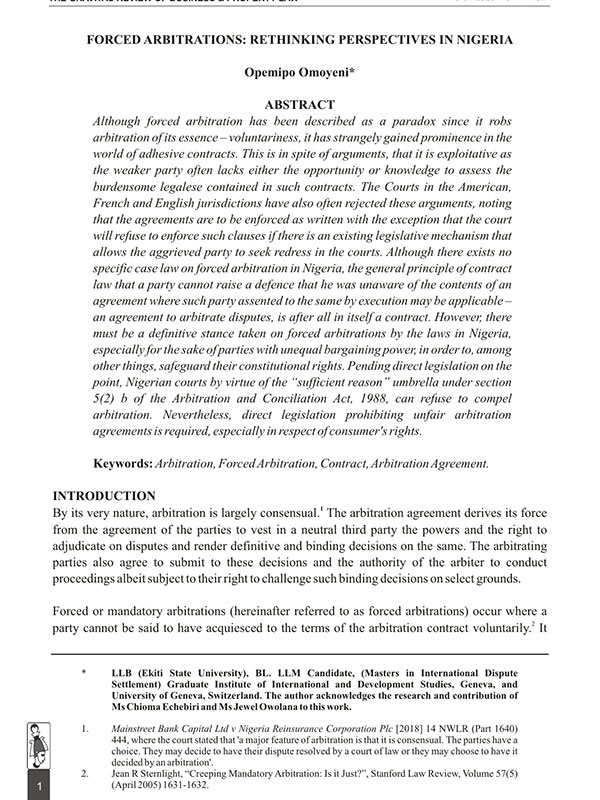
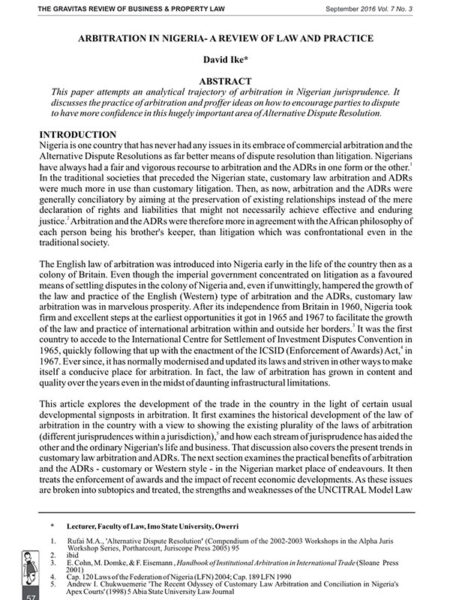
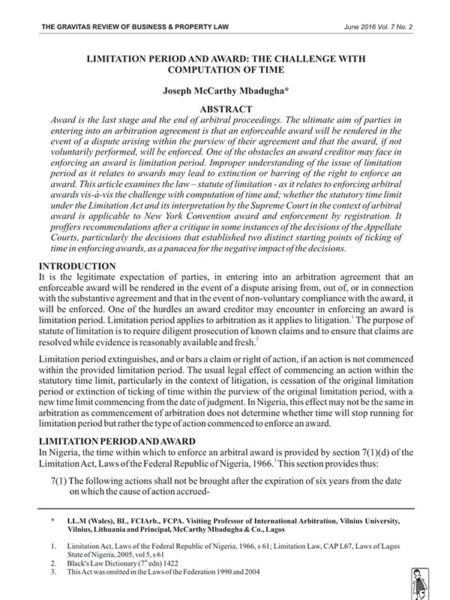
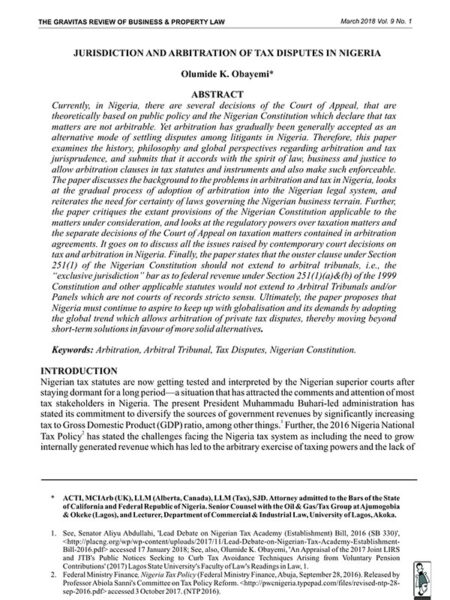
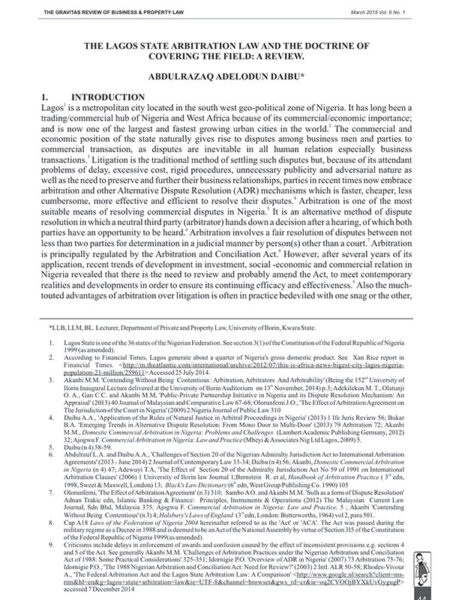


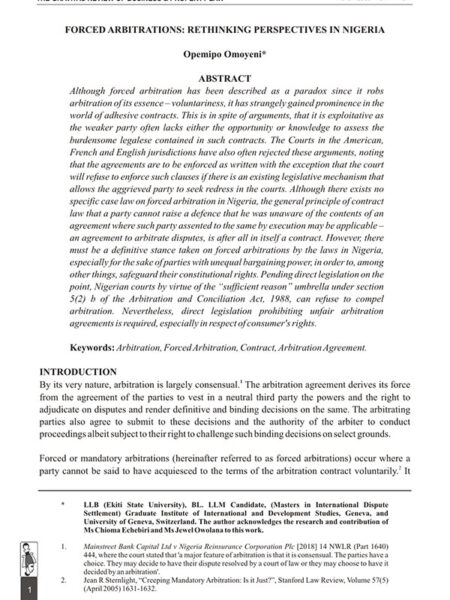
Reviews
There are no reviews yet.